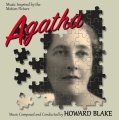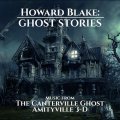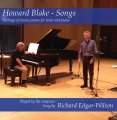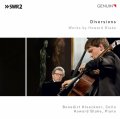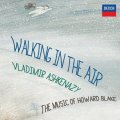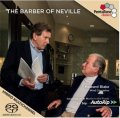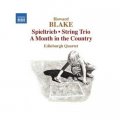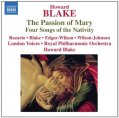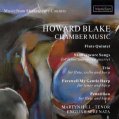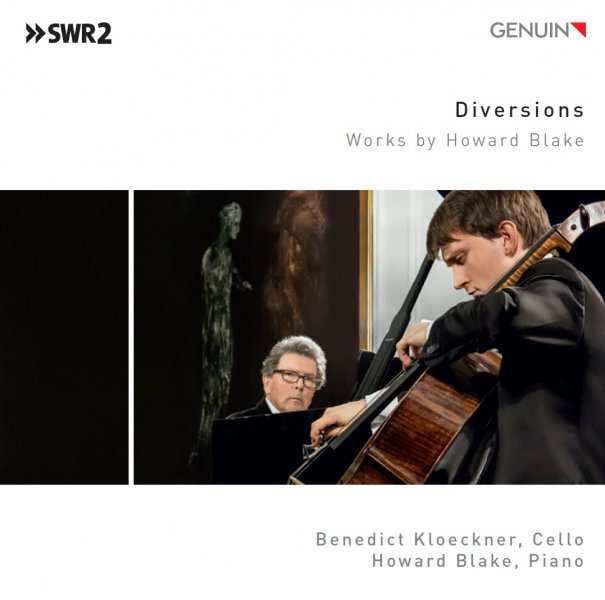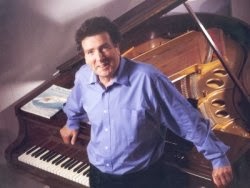 Highbridge Music Ltd.
Highbridge Music Ltd.
Studio 6, 18 Kensington Court Place, London W8 5BJ, UK
Email: howard@howardblake.com
DIVERSIONS FOR CELLO AND PIANO op.337A (1985)
A suite for cello and piano transcribed from the work for cello and orchestra, opus 327. Definitive cello and piano version
Published by: Highbridge Music LtdInstrumentation: violoncello and piano
[Key to Abbreviations]
Duration: 23 mins
First Performance: Martin Rummel and the composer at The British Music Information Centre, London May 2000
Sheet Music Available
Instrumental / piano score for saleInstrumental parts for sale
Recordings Available
DIVERSIONS - Works by Howard Blake for cello and piano
Released: 1st March 2015
Recorded: 2014
Artists: Howard Blake (Piano), Benedict Kloeckner (Cello)
Available from: amazon GENUIN
Released: 1st March 2015
Recorded: 2014
Artists: Howard Blake (Piano), Benedict Kloeckner (Cello)
Available from: amazon GENUIN
A recording of the orchestral version was made by Robert Cohen and The Philharmonia conducted by the composer, first issued on Sony CD HB3 in 1991 and re-issued by Sony BMG Music Entertainment UK Ltd 8697376972 in 2008 with a new booklet and artwork.
Movements
-
1:
Prelude (moderato)
1 minutes
28 seconds
-
2:
Scherzo (vivace)
1 minutes
03 seconds
-
3:
March (tempo di marcia)
-
4:
Waltz (vivo)
2 minutes
43 seconds
-
5:
Aria (andante espressivo)
4 minutes
26 seconds
-
6:
Serenade (allegretto)
2 minutes
30 seconds
-
7:
Sarabande (lento non troppo)
3 minutes
00 seconds
-
8:
Finale (vivo)
3 minutes
27 seconds
-
Notes
‘Diversions’ was originally conceived as a suite for cello and piano as far back as 1973. In 1984 the great French cellist Maurice Gendron encouraged the composer to rework the piece for cello and orchestra, and he himself edited the cello part. The first performance of the work in this orchestral form was given by Steven Isserlis and The Royal Philharmonic Orchestra conducted by Sir Charles Groves at The Fairfield Halls Croydon on 29th March 1989. This transcription for cello and piano was made by the composer at about the same time
Programme-note by the composer: The work pays mischievous homage to instrumental suites of the past. The Scherzo is not quite a scherzo, the March more than a march. The Waltz has a wrong-stepping jazz tinge to it, the Aria a sudden profundity. The Serenade bursts into arrogant display, the guitar-like Sarabande becomes an eloquent cadenza. We are led back to the theme of the Prelude via a Finale of such bristling virtuosic energy that its simple melodic line assumes a far more complex character – having been well and truly ‘diverted’.
A new lease of life was given to the work in November 2010 when the brilliant young German cellist, Benedict Kloeckner, accompanied by Spanish pianist Jose Gallardo, won the penultimate round of the EBU Young Artists Competition in Bratislava, which led to Benedict playing the Elgar Concerto and winning the entire contest. To celebrate the event Howard transcribed his violin sonata for cello and piano and in the following Spring assembled an entire recital of cello and piano music for Benedict, which the two of them performed in concert in the Historisches Cafehalle in Schlangenbad near Mainz on May 8th 2011. The recital consisted of Pennillion, Diversions, Jazz Dances, Cello Sonata and various encores, including a new cello and piano version of 'Walking in the Air'.
An English composer with a pronounced lyrical gift, Howard Blake (b. 1938) is perhaps best known for his soundtrack to the feature cartoon, "The Snowman," which has a hauntingly beautiful refrain "Walking in the Air" for boy soprano and orchestra. He has a body of more "serious" works though, and we can hear some of how that sounds on a new recording featuring works for cello and piano, Diversions (SWR2/Genuin 15346). Benedict Kloeckner takes on the cello role for these works and sounds terrific. Howard Blake himself handles the piano part with dramatic credibility.These are modern lyric pieces that show us Blake the gritty but mellifluous contemporary composer in a series of six compositions, all but one enjoying world premier recordings in the versions presented. This is music of a pronounced tonality but without anything in the way of a neo-classical glance at the past. He may certainly have something of the romantic in him, but like Samuel Barber it is so individual that you don't find yourself saying, "yes, that is Brahmsian...that is Mendelssohnian, etc." The works hold their own as contemporary music with a pronounced Blakean signature affixed. There is nothing banally "new age" sounding to them either. The music is filled with inventive flourishes that evince a fertile creative mind at work.
The piano parts occasionally step into the spotlight but mostly this is music that gives the cellist a chance to take a singing melodic lead. Kloeckner responds with an extraordinarily vibrant tone and rhapsodic lucidity.
There is nothing in the way of filler. Each work has something to say. We get a touching rendition of "Walking in the Air" that reminds us how well-constructed the deceptively straightforward song is. But then we get more complexly lyrical works in the title work "Diversions for Cello & Piano," in "Pennillion for Cello & Piano," the "Cello Sonata," and "The Enchantment of Venus." The program concludes with a short and very lovely "Archangel's Lullaby" and we are done.
This is music any classical Anglophile will appreciate. It has an accessibility that will appeal to a large audience, potentially. And it is rousingly good music. It is not high modernist but it is thoroughly contemporary. It has a special quality to it that belongs very much to the musical personality of Howard Blake.
Very much recommended.
Performances
| 9th September 2018 | Solo pianist for performance of 'Speech after long silence' Florian Koltun ; Players for duo
, piano trio and piano quartet - Wolfgang Schroeder (violin), Karolina Herrera(viola), Benedict Kloeckner (cello), Xin Wang(piano), Der Alten Kirche, Spay (nr. Coblenz) 17.00 pm
5th International Music Festival, Coblenz, September 9th 2018
COBLENZ INTERNATIONAL MUSIC FESTIVAL PRESENT A PROGRAMME OF MUSIC BY HOWARD BLAKE TO CELEBRATE HIS 80th YEAR. Der Alten Kirche, Spay, Coblenz, September 9th., 2018 at 17.00 pm 1. SPEECH AFTER LONG SILENCE for solo piano, a piece commissioned by Vladimir Ashkenazy for the Hong Kong International Piano Competition 2011 (Opus 610) solo piano: Florian Koltun 'Unlike most new works, whose fate is to be played on multiple occasions ad nauseam at a competition and then shelved for eternity thereafter, this one promises to be heard rather often. Blake’s partiality for tonality and emotional connection (unsurprising for the composer of the children’s favourite The Snowman) makes this a most accessible work. At about 8 minutes, its Romantic gestures replete with lush harmonies and crashing chords resemble an updated and extended version of one of Rachmaninov’s Etudes-tableaux' Chang Tou Lang, 2. ‘DIVERSIONS FOR CELLO AND PIANO’, the work that in 2010 won Benedict Kloeckner the European Broadcasting Union first prize (Opus 337A) Piano Howard Blake, Cello Benedict Kloeckner 1: Prelude (moderato) 2: Scherzo (vivace) 3: March (tempo di marcia) 4: Waltz (vivo) 5: Aria (andante espressivo) 6: Serenade (allegretto) 7: Sarabande (lento non troppo) 8: Finale (vivo) minutes 27 seconds ‘Diversions’ was originally conceived as a suite for cello and piano as far back as 1973. In 1984 the great French cellist Maurice Gendron encouraged the composer to rework the piece for cello and orchestra, and he himself edited the cello part. The first performance of the work in this orchestral form was given by Steven Isserlis and The Royal Philharmonic Orchestra conducted by Sir Charles Groves at The Fairfield Halls Croydon on 29th March 1989. This transcription for cello and piano was made by the composer at about the same time The work pays mischievous homage to instrumental suites of the past. The Scherzo is not quite a scherzo, the March more than a march. The Waltz has a wrong-stepping jazz tinge to it, the Aria a sudden profundity. The Serenade bursts into arrogant display, the guitar-like Sarabande becomes an eloquent cadenza. We are led back to the theme of the Prelude via a Finale of such bristling virtuosic energy that its simple melodic line assumes a far more complex character – having been well and truly ‘diverted’.Diversions' is also the name of an album of music by Howard Blake for cello and piano played by Benedict Kloeckner and the composer, released in 2015 by the Leipzig label Genuin. ’Benedict Kloeckner plays the cello music of Howard Blake, with the composer himself accompanying - unfailingly attractive and often tremendous fun for both performers and lsiteners., THE STRAD, 2/2018
3. PIANO TRIO NO. 3 ‘ELEGIA STRAVAGANTE’ (Opus 654) a trio in 7 linked movements, first performed at the Coblenz International Music Festival 2013 Violin Wolfgang Schroeder, Cello Benedict Kloeckner, Piano Howard Blake Movements
Composer's notes: On the afternoon of my birthday I went to sleep for a short while and dreamed up a septuplet 'trill-flourish' motif in C major and an ensuing 'upward-sweeping' melodic fragment of a minor 2nd and major 7th, both of which I immediately wrote down. This was to be the material on which the trio was based.
I was searching for a 6/8 allegro idea and worked at several until I suddenly remembered the 'jazz fugue' from 'Movement for orchestra' which I'd written way back in about 1963. It seemed to fit perfectly and work most effectively for piano trio, forming a perfect link between the Andante (rapsodico) and the next section Tragico.
Tragico begins with the upward-sweeping motif, but now very slow and sad. This forms a bridge and modulation to E-minor where the cello enunciates the theme 'Parting', a fragment I had dreamt up whilst preparing the repertoire for Vladimir Ashkenazy's album of my piano works in June 2013. Here the 'Parting' theme develops greatly, leading quite rapidly and unexpectedly to a colossal climax, then falling down to a paused low chord of C major which begins section 4.
Grave molto espressivo is a deeply-felt cadenza for violin and cello which then starts to accelerate (piu mosso) towards section 5
Cello and violin play in unison at the 16th against a constantly turning piano phrase using the ever-present 'trill-flourish' motif. Martial and tragic hints and twists are now overcome by massive upward scalic movements seeking a major key and suddenly triumphantly asserting that of E major.
Giojoso, ecstatico transforms and inverts the minor 'upward-sweeping' theme into a major 'hymn of triumph' punctuated with huge piano chords. The energy of this is so great however that it must inevitably sink down to regain stability and a hardly-moving harmonic 'thirds duplet' grows gradually quieter and slower until it sinks away to nothing without resolution.
The music of the opening returns but this time in the key to which the piece has ascended - E major, the final bar picking up the 'trill-flourish' motif and giving the whole work a resolution with a very short coda on violin and cello sounding alone - yet perhaps finally together. The piano is wise enough not to interfere
4. PIANO QUARTET (Opus 179) Xin Wang (piano), Wolfgang Schroeder (violin), Karolina Herrera (viola), Benedict Kloeckner (cello)
A dramatic theme A (and in A minor) is presented by unison violin and viola over a pounding rhythm that would be equally at home in rock. A second theme B is equally rhythmic on contrapuntal strings over hammering piano semiquavers but subsides into a lyrical C minor piano version of A against legato strings. This subsides further again into a Theme C (and in C major) announced by the cello. It is spread across the three strings against piano chords gradually dying down to a held F sharp unison. This kicks off the development by taking us back to the first tempo but this time featuring theme B with running semiquavers which build and build until a pedal pulls us back into a full-bodied return of our home theme A on full strings and rocking piano chords.
A very fast tempo allows all instruments to fly through a Scherzo of heavily-syncopated rhythms and riotous escapades. It follows the scherzo form with a trio featuring predominantly piano against pizzicato cello, but they yield to questioning phrases on violin and viola before recapping to the scherzo and a noisy coda.
3. Lento espressivo
4.Allegro robusto Notes The opening of the first movement is used as a signature theme by KUSC, the audience-supported classical music radio station of the University of Southern California. Its composer is delighted and honoured by this
|
| 24th April 2015 | Benedict Kloeckner, cello and Hoeward Blake, piano, Genuin records/SWR
[DIVERSIONS (cello and piano)] [ARCHANGELS' LULLABY (for cello and piano)] [PENNILLION (for Cello and Piano)] [CELLO SONATA] [WALKING IN THE AIR FOR CELLO & PIANO] [THE ENCHANTMENT OF VENUS FOR CELLO AND PIANO]by Greg Applegate in Gapplegate 24/4/2015
Howard Blake, Diversions, Benedict Kloeckner An English composer with a pronounced lyrical gift, Howard Blake (b. 1938) is perhaps best known for his soundtrack to the feature cartoon, "The Snowman," which has a hauntingly beautiful refrain "Walking in the Air" for boy soprano and orchestra. He has a body of more "serious" works though, and we can hear some of how that sounds on a new recording featuring works for cello and piano, Diversions (SWR2/Genuin 15346). Benedict Kloeckner takes on the cello role for these works and sounds terrific. Howard Blake himself handles the piano part with dramatic credibility. These are modern lyric pieces that show us Blake the gritty but mellifluous contemporary composer in a series of six compositions, all but one enjoying world premier recordings in the versions presented. This is music of a pronounced tonality but without anything in the way of a neo-classical glance at the past. He may certainly have something of the romantic in him, but like Samuel Barber it is so individual that you don't find yourself saying, "yes, that is Brahmsian...that is Mendelssohnian, etc." The works hold their own as contemporary music with a pronounced Blakean signature affixed. There is nothing banally "new age" sounding to them either. The music is filled with inventive flourishes that evince a fertile creative mind at work. The piano parts occasionally step into the spotlight but mostly this is music that gives the cellist a chance to take a singing melodic lead. Kloeckner responds with an extraordinarily vibrant tone and rhapsodic lucidity. There is nothing in the way of filler. Each work has something to say. We get a touching rendition of "Walking in the Air" that reminds us how well-constructed the deceptively straightforward song is. But then we get more complexly lyrical works in the title work "Diversions for Cello & Piano," in "Pennillion for Cello & Piano," the "Cello Sonata," and "The Enchantment of Venus." The program concludes with a short and very lovely "Archangel's Lullaby" and we are done. This is music any classical Anglophile will appreciate. It has an accessibility that will appeal to a large audience, potentially. And it is rousingly good music. It is not high modernist but it is thoroughly contemporary. It has a special quality to it that belongs very much to the musical personality of Howard Blake. Very much recommended. |
| 17th April 2015 | Benedict Kloeckner cello, Howard Blake piano, Milton Court, (London Barbican) |
| 17th April 2015 | Madeleine Mitchell (violin), Rivka Golani(viola), Benedict Kloeckner (cello), Sasha Grynyuk (piano), Milton Court, The Barbican, London Concert arranged by Lisa Peacock |
| 25th March 2015 | Benedict Kloeckner cello, Sasha Grynyuk piano, Bob Boas concert room, 22 Mansfield Street, W1, 7.30
A concert to celebrate the release of 'Diversions' an album of Howard Blake's music for cello and piano - Benedict Kloeckner cello and the composer as pianist - Genuin label, recorded by SWDR Germany Howard is unable to play having unfortuately sufferred a broken wrist. He will however be present to act as mediator. |
| 25th March 2014 | Howard Blake music for cello and piano, Bob Boas concert room, London |
| 27th January 2014 | Benedict Kloeckner (cello) Howard Blake (piano), SWDR recording studios, Kaiserslautern, Germany (South West German Radio)
Recordings of Howard Blake's works for cello and piano commenced at the studios of SWDR in Kaiserslautern with 'Tonmeister' Ralf Kolbinger July 12-14 2013. The composer was interviewed on the 12th by producer Sabine Fallenstein for the radio station and an album scheduled for release on the record label GENUIN. The decision to record followed up Benedict's triumph with Howard's 'Diversions' in the version for cello and piano in 2010 which won him the EBU youth musician prize and thereafter gave rise to succesful performances with various pianists including the composer himself. Howard was invited by Benedict in 2011 to join him in a complete recital of his works in the delightful venue of the Schlangenbad Historisches Konzerthaus outside Mainz. This proved to be an astonishing success, with a capacity audience who demanded endless encores and gave repeated stand-up ovations. The repertoire for this recording largely mirrored that of the concert. Recording was finally completed on January 28th 2014 and included the addition of the work 'The Enchantment of Venus' for cello and piano. |
| 29th October 2013 | Benedict Kloeckner and Howard Blake, The Music Room, 45 Queen's Gate Terrace, Kensington, London
A programme of Howard Blake's music on his 75th birthday |
| 19th October 2013 | Benedict Kloeckner cello and Danae Dorken piano, Gasteig Munich
The recital included Howard Blake's 'Diversions' for cello and piano and the first performance of 'Prelude for Benedict' for solo cello, in an arrangement created specially for the occasion by the composer who was in attendance. The concert was a resounding success and, echoing the orchestral concerts with the Berlin Chamber Orchestra earlier in the year 'Archangel's Lullaby' was done as one of the encores. The event was recorded by Bavarian Radio. |
| 5th October 2013 | Kloeckner/Blake, Steinway House Dusseldorf
A concert of Howard's music for cello and piano with EBU prizewinner Benedict Kloeckner including the premiere of 'THE ENCHANTMENT OF VENUS' for cello and piano |
| 18th January 2012 | Benedict Kloeckner, cello and Jose Gallardo, piano, Schloss Ettlingen, Karlsruhe, Germany
Kloeckner and Gallardo play 'Diversions' again - Howard's virtuosic work for cello and piano that qualified them as finalists in the EBU youth music prize 2010 and led to the winning of the first prize. The programme couples the work with a Brahms sonata. |
| December 2011 | Danae Doerken and Benedict Kloeckner, Mecklenburg-Pommern-Festival |
| 2nd October 2011 | Benedict Kloeckner and Howard Blake perform a lunchtime concert programme of 'Diversions for cello and piano' and 'Cello Sonata', The International Cello Festival, Kronberg Academy, Kronberg, Germany, 10.30-12.00am |
| 8th May 2011 | Benedict Kloeckner and Howard Blake, Historische Cafehalle, Schlangenbad, Mainz
Benedict Kloeckner spielt Howard Blake - werke des beruhmten britischen Komponisten fur cello und Klavier |
| 26th November 2010 | Benedict Kloeckner, Bratislava EBU Young Artists Competition |
| 20th April 2010 | Benedict Kloeckner, Roope Groendahl, Burgersaal, Altes Rathaus, Esslingen, Germany 20.00
Opening concert of the Young European Music Festival 2010 |
| 8th February 2010 | Benedict Klockner and Jose Gallardo, Sud West Deutche Rundfunk, Mainz, Germany
A recording for future broadcast |
| November 2009 | Benedict Kloeckner and Elisaveta Blumina,
First performance in Germany |
| May 2000 | Martin Rummel (cello) and Howard Blake (piano), The British Music Information Centre |
| 3rd May 1992 | Robert Cohen, Howard Blake, The Manchester Cello Festival at the RNCM |
Reviews
Review of 'Diversions' - an album of music by Howard Blake for cello and piano played by Benedict Kloeckner and the composer, released 2015 by Genuin.
'I'd also recommend an overlooked 2015 disc from the Austrian Genuin label where Benedict Kloeckner plays the cello music of Howard Blake, with the composer himself accompaying - unfialingly attractve and often tremendous fun for both performers and lsiteners.'
PETER QUANTRILL, THE STRAD, 2/2018
| REVIEW | Plain text for smartphones & printers |
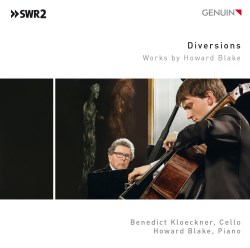
| ||||
Howard BLAKE (b.1938)
Diversions for cello and piano, Op.337a (1984/85) [23:15]
Pennillion for cello and piano Op. 525a (2001) [8:49]
Cello Sonata, Op.619 (2007/2010) [23:31]
The Enchantment of Venus, Op.566a (2006) [8:07]
Walking in the Air, from The Snowman, Op.620a (1982/2011) [3:54]
Archangel’s Lullaby, Op.436a (1991) [2:01]
Benedict Kloeckner (cello)
Howard Blake (piano)
rec. July 2013 and January 2014, Südwestrundfunk, SWR Studio Kaiserslautern
GENUIN GEN15346 [70:04]
Diversions was originally conceived as a suite for cello and piano but Maurice Gendron suggested it would work for cello and orchestra and edited the solo part (review ~ review). With his Op.337a Blake returns to his original conception with Benedict Kloeckner, who has played it frequently, and has mastered its various moods – whether the bittersweet Prelude, the vital, rhythmically dashing and somewhat Francophile Scherzo, the slow expressive March or the work’s expressive heart, the rapt Aria. Not one to wallow, Blake ensures that the vivacious and slinky Serenade prefaces a rather eerie Sarabande and an exciting Finale.
Composed for the bardic team of violin and harp, Pennillion is heard in its cello-and-piano incarnation here which well suits it, not least in that hypnotic Lento, misterioso section in the work’s centre. The expressive flexibility of the melodic lines, and the affectingly quite close, never fail to move in whatever combination. The Cello Sonata, rather like the Franck arrangement, is a transcription of the Violin Sonata. This is a work I especially admire for its emotive candour. In fact, part of my MWI review of the sonata in its Violin guise is reprinted in the booklet, and my comments apply equally to this version. I’d only say that knowing that it was conceived in memory of fiddle player Miles Baster makes performance on the violin a touch more poignant – though if you didn’t know, it wouldn’t much matter.
The Enchantment of Venus, Op.566a is an arrangement of a work originally for basset clarinet. It was Kloeckner who suggested this arrangement and he certainly ensures that the work’s occasional gruffness but also its essential lyricism are brought to the fore. It has strong March themes – Blake is very good at them - and is well proportioned. Two small pieces see the disc out. Walking in the Air is recorded, for the first time, for cello and piano – a delight, and the piano twinkles deliciously. Finally Archangel’s Lullaby is a perfect envoi, offering a final glimpse at Blake’s seemingly endless gift for melody and beauty.
The recording is well judged and the booklet is sympathetic, quoting from a variety of source material.
Jonathan Woolf
Jonathan Woolf, MusicWeb International, 2017
DIVERSIONS
Diversions Interpreters: Benedict Kloeckner (Violoncello), Howard Blake (Piano) Label: Genuin GEN 15346 Type: CD Published in: Das Orchester November 2015, page 85 On this CD ‘Diversions’ the composer Howard Blake (1938) joins up with Benedict Kloeckner (1989) the rising star of the cello world to present a programme of his own compositions. When Kloeckner won the New Talent Competition of the European Broadcasting Union in 2010 with Blake’s suite ‘Diversions’, the composer presented him with the Cello Sonata and the opportunity of being first to perform it. This led to the two musicians joining up in a close working relationship which has produced a wonderful-sounding album in which the rhythmic finesse of film music and elements of jazz combine to delight the ear. The British pianist, conductor and composer Howard Blake has written soundtracks for famous films as well as numerous concert works and is thus able to exhibit an extensive and multi-faceted oeuvre. One of his most famous pieces is the song ‘Walking in the Air’ from the film ‘The Snowman’, which is to be heard on this CD. Another famous credit is his soundtrack for the science-fiction film ‘Flash Gordon’ on which he worked together with the British rock band ‘Queen’. Throughout the album one can hear that Howard Blake is at home in the film metier in his compositions. They are colourfully laid out and tell stories. Striking melodies, rhythmic complexity, virtuosically-constructed passages and strongly-expressive harmonies determine their character. Some of the pieces heard on the CD were originally written for other combinations and therefore it is as transcriptions that they should be credited as world first performances. The work providing the album-title, ‘Diversions’, is an eight-movement suite which plays with contrasts. It takes historical forms such as the Prelude or the Sarabande, but dresses them up them in contemporary clothes, using jazzy and rhythmically-pointed musical elements. During the variation-work ‘Pennillion’ its longing, cantabile melody is allowed to shine in ever-changing new lights, the Cello Sonata is most unusual in its voicings. At last we come to the programme-piec ‘The Enchantment of Venus’, for whose story Blake is served by Greek myth. The farewell exhibits two short melodic pieces, ‘Walking in the Air’ and ‘Archangel’s Lullaby’ that was originally written for three cellos. Howard Blake and Benedict Kloeckner convince on this high-quality album by their clearly-heard joy in the music. The outstanding quality and the beauty of sound is maintained throughout the works and their very different characters. Blake’s compositions with their catchy melodies must surely appeal not only to film-music buffs but to anyone who opens their ears! Anna Catharina Nimczik
Arranged by DAS ORCHESTER NOVEMBER 2015
Anna Catharina Nimczik, Das Orchester, 11/2015
'DIVERSIONS' - CD of works for cello and piano by Howard Blake on GenuinRecords
Benedict Kloeckner, Violoncello
Howard Blake, Piano and Composition
[DIVERSIONS (cello and piano)]
Rhein Main magazine 7/2015
'DIVERSIONS' - CD of works for cello and piano by Howard Blake on GenuinRecords
Benedict Kloeckner, Violoncello
Howard Blake, Klavier und Komposition
The English composer Howard Blake is a living legend, with his history of composed soundtracks from ‘The Avengers’ to the Oscar-nominated ‘Snowman’. That such a musician should also be invited as concert performer is a rare phenomenon, whilst the fact that he can still pull from his desk an unperformed work ready for first performance seems to beggar belief. But Benedict Kloeckner considers his participation an honour. In a new GENUIN-CD the shooting-star of our cello-scene fuses, with the master himself at the piano, into unity: Blake’s works, with their rhythmic finesse, their wit and their lights of a thousand colours. An absolute must for both chamber music and film fans! (trans.)
Der englische Komponist Howard Blake ist eine lebende Legende: Soundtracks wie „Mit Schirm, Charme und Melone“ oder der mit dem Academy Award nominierten „Schneemann“. Dass einen solch ein Musiker zum Musizieren einlädt, ist wahrscheinlichsehr selten. Dass er dann aber auch noch ein neues Werk zur Ersteinspielung aufs Pult legt, mag an ein Wunder grenzen. Benedict Klöckner aber erweist sich dieser Ehre als absolut würdig: Der Shootingstar der Cello-Szene verschmilzt in der neuen GENUIN-CD mit dem Grandseigneur selbst am Klavier zu einer Einheit: Die ganze Vielfalt des Blake‘schen Oeuvres, seine rhythmischen Finessen und sein Witz leuchten in tausend Farben. Für Kammermusik- und Filmmusik-Fans ein Muss!
(orig. German)
Gapplegate Classical-Modern Music Review
Fünf von fünf Sternen
"Howard Blake himself handles the piano part with dramatic credibility. (...) Kloeckner responds with an extraordinarily vibrant tone and rhapsodic lucidity. (...) It is not high modernist but it is thoroughly contemporary. It has a special quality to it that belongs very much to the musical personality of Howard Blake. Very much recommended."
Zur ausführlichen Rezension von Greg Applegate vom 24. April 2015
13.5.15 / WDR3 TonArt
Auf WDR3 TonArt wird am 13.05. ein Porträt über Benedict Klöckner gesendet.
Zur Homepage von WDR3 TonArt
klassik.com
"Der Cellist Benedict Kloeckner spielt Werke von Howard Blake, der Komponist selbst übernimmt den Klavierpart: Das Ergebnis ist rundum schön."
Zur Rezension von klassik.com!
Rhein Main Magazin
"leuchten in tausend Farben"
Besprechung im Rhein Main Magazin 4/2015
"Es ist raffiniert gemachte, leichte Musik mit vielen melodischen Einfällen, brillant gespielt und am Ende sehr unterhaltsam
[This is refined, light, well-constructed music, full of melodic inspiration, brilliantly performed and finally very engrossing.]
Various, Rhein Main magazine, Pizzicato magazine and others, 1/7/2015
Howard Blake, Diversions, Benedict Kloeckner
An English composer with a pronounced lyrical gift, Howard Blake (b. 1938) is perhaps best known for his soundtrack to the feature cartoon, "The Snowman," which has a hauntingly beautiful refrain "Walking in the Air" for boy soprano and orchestra. He has a body of more "serious" works though, and we can hear some of how that sounds on a new recording featuring works for cello and piano, Diversions (SWR2/Genuin 15346). Benedict Kloeckner takes on the cello role for these works and sounds terrific. Howard Blake himself handles the piano part with dramatic credibility.
These are modern lyric pieces that show us Blake the gritty but mellifluous contemporary composer in a series of six compositions, all but one enjoying world premier recordings in the versions presented. This is music of a pronounced tonality but without anything in the way of a neo-classical glance at the past. He may certainly have something of the romantic in him, but like Samuel Barber it is so individual that you don't find yourself saying, "yes, that is Brahmsian...that is Mendelssohnian, etc." The works hold their own as contemporary music with a pronounced Blakean signature affixed. There is nothing banally "new age" sounding to them either. The music is filled with inventive flourishes that evince a fertile creative mind at work.
The piano parts occasionally step into the spotlight but mostly this is music that gives the cellist a chance to take a singing melodic lead. Kloeckner responds with an extraordinarily vibrant tone and rhapsodic lucidity.
There is nothing in the way of filler. Each work has something to say. We get a touching rendition of "Walking in the Air" that reminds us how well-constructed the deceptively straightforward song is. But then we get more complexly lyrical works in the title work "Diversions for Cello & Piano," in "Pennillion for Cello & Piano," the "Cello Sonata," and "The Enchantment of Venus." The program concludes with a short and very lovely "Archangel's Lullaby" and we are done.
This is music any classical Anglophile will appreciate. It has an accessibility that will appeal to a large audience, potentially. And it is rousingly good music. It is not high modernist but it is thoroughly contemporary. It has a special quality to it that belongs very much to the musical personality of Howard Blake.
Very much recommended.
Greg Applegate, Gapplegate, 24/4/2015
Tuesday, 19 November 2013
Diversions beyond the Snowman - an encounter with Howard Blake
Labels: feature article, interview
I recently heard Benedict Kloeckner and Howard Blake playing a programme of Howard's music for cello and piano as a celebration of the composer's 75th birthday. At the concert Howard talked of his working on the cello part of the Diversions with the great French cellist Maurice Gendron. Subsequent to this I found I could find no record of Gendron having played the work (Howard's website is admirably comprehensive). So when I met up with Howard Blake to talk about his music and his career it seemed natural to start off our conversation by asking about Diversions.
We met in his studio, a former artist's studio on a top floor in Kensington, double-height, top lit, with both a computer and a piano, walls lined with books, pictures and CDs, a record of a long working life; a lovely room in which to work. In person Howard Blake is charming and seemingly possessed of almost total recall, able to talk with ease about events in the past. He uses his website to store all the details of his various performances and during our conversations occasionally pauses to check a detail on his pc.
Diversions history is an example of how Howard's concert works seem to go through multiple version, responding to need. Howard is a very practical composer, who sees his role as a craftsman and more than once in our discussions he talked about the composer's role and the need to respond in practical fashion. On his website Howard includes a couple of phrases which seem to sum up both the man and his music, describing himself as 'a composer working as a craftsman, responding to the requirements of the day', and referring to his music as being 'hopefully inspirational and non-elitist'.
Howard's Diversions started as a piece for cello and piano in 1973, though he admits that the work was not as honed as it is now. Ten years later, Howard was in contact with the French cellist Maurice Gendron who suggested that the work might be developed into a concerto and Howard travelled to Gendron's home in Grez-sur-Loing to work with him. Gendron's home was just up the river from Delius's house and Howard was able to row from Gendron's house to Delius's along the river which inspired such works as Summer Night on the River.
Gendron announce that the finale was boring; to Howard's comment that it was intended to be a major version of the main theme, Gendron responded that he had heard the theme once and never wanted to hear it again. Also, Gendron wanted Howard to make the Sarabande more virtuosic. Though Gendron was in his mid-sixties at the time, he was a superb player and under his encouragement Howard made the work more virtuosic, adding a new Cadenza and Finale. Gendron showed Howard how to take advantage of the extreme possibilities of the cello
Once completed, it was planned to premiere the work at the Brighton Festival with the BBC Symphony Orchestra and Gendron as soloist. Near to the concert date the head of Radio 3 informed Howard that it was felt that Gendron was 'past it' and that he was being dropped. (Howard disagreed with this assessment of Gendron, having played works such as Tchaikovsky's Rococo Variations with Gendron whilst staying with him). Another soloist was not offered, and the BBC simply dropped Howard's work from the concert. The work was subsequently premiered with the Royal Philharmonic Orchestra and Steven Isserlis as the soloist in the Fairfield Halls, Croydon with Sir Charles Groves conducting, in 1989. Though the location did mean that the work did not make as much impression as it might have.
As a result of a record contract with Sony, which came about because of the success of The Snowman, Howard was able to record the concerto alongside his Piano Concerto on a new disc. Steven Isserlis declined to record the work so the part was recorded by Robert Cohen. Howard feels that this splitting of the solo role rather dissipated the potential of the work at its premiere performances; though Isserlis performed it subsequently, the recording was by a different cellist. Isserlis performed the work in 1991 at the Three Choirs Festival with the RLPO and Vernon Handley. Robert Cohen performed it in 1989 at the Royal Festival Hall, with the Bach Choir performing Howard's Benedictus, though Howard admits that it didn't fill the hall. Cohen performed the work again in 2000 with the Brighton Philharmonic under Barry Wordsworth.
And that appeared to be that. Then in 2010 Howard got an email from a young German cellist, Benedict Kloeckner. One of Kloeckner's teachers was Martin Rummel. Howard and Martin Rummel had played the Diversions, in the version for cello and piano at the British Music Information Centre. When Kloeckner asked Rummel to recommend a contemporary work for cello and piano he suggested the Diversions. Having learned it, Kloeckner wanted some coaching and he and his pianist came over to Howard's studio.
My meeting with Howard is in his studio and at this point in our discussion he walks over to the piano to demonstrate how the young players had got some of the speeds wrong, and he plays a passage twice; once gently and then again, this time rather burning up the keyboard. Impressed with Kloeckner's playing, Howard found himself demonstrating a lot to them. After two hours, Howard assumed that was that.
Then Howard got an email from Benedict to say that he had entered the work for the European Broadcasting Union Young Artists Competition, and had come in the last seven (out of 32 countries), and that the finals were in Bratislava when he would be playing Diversions again. Howard went out to Bratislava and heard Benedict playing Diversions and he came in the final three. Next day the three finalists played a concerto, and Benedict played the Elgar and came first. Howard described it as a big event, champagne was drunk and bold plaques delivered.
Before leaving for Bratislava Howard had realised that, if Benedict did win he would need a present. He thought of his violin sonata and, as with Sibelius it was relatively straightforward to transpose the work for cello. Benedict was pleased with his present and, some time later invited Howard to do a recital with him. With Diversions, the new/old Cello Sonata and two existing works for cello and piano Penillion and Jazz Dances, they had a complete programme.
The first time that Howard played with Benedict Kloeckner he felt that they had a rapport. Their first concert together was at the Historiche Cafehalle in Schlangenbad, a suburb of Mainz in 2011. The concert was a success and they have gone on to do further concerts together and will be recording the programme for SWDR in early 2014.
But the long journey of Diversions wasn't finished. Benedict had been playing with the Berlin Kammerorchester, performing a string version of Schumann's Cello Concerto in 2011 which Howard heard. So Howard created a new version of Diversions for string orchestra, which Benedict played at the Berlin Konzerthaus this year. And there are possibilities of further performances in the UK next year
Benedict Kloeckner and the Berlin Kammerorchester conductor Jordi Bernacer in Howard Blake's Diversions for Cello and String Orchestra
Howard Blake had started life as a pianist, getting a piano scholarship to the Royal Academy of Music. Whilst at the Academy he formed a duo with the violinist Miles Baster and learned the whole of the violin/piano repertoire, performing recitals in music clubs. In 1960 they performed in Edinburgh. It was a great success and Baster was offered a job of founding the Edinburgh String quartet. Thus bringing an end to their duo partnership.
Howard's time at the Academy wasn't entirely happy. His composition teacher, Howard Ferguson, retired after a year and Howard found himself out of sympathy with the prevailing style of serialism and modernism on composition. Whilst at the Academy he virtually stopped composing and stopped playing the piano.
Afterwards he started to work in films eventually working as a session player and conducting. He also learned to play jazz as it was only way to get work, eventually becoming in house pianist for the Abbey Road studios, playing everything from classical to jazz and rock, even playing cabaret on television.
This led to work on films with people like Bernard Hermann and it was through Hermann that he took over writing music for The Avengers (Howard wrote music for 10 episodes). Later in our conversations Howard talked about having to write music for a weekly show like the The Avengers stopped him worrying about the Academy's obsession with making every bar of music original. This was being a craftsman, writing music responding to need.
Life became so busy, with conducting, composing and being musical director at Elstree Studios, that Howard stopped playing the piano entirely. The busy-ness finally got to him, and he found he had no time for writing music, he wanted to write chamber music again. So in 1972 he dropped out and moved to Sussex. He admits that he was lucky, he had enough money in royalties to make him independent.
Asked to write a series for Thames TV he said he'd do it if he could write for a chamber group, a piano trio with himself piano. He enjoyed it and they started playing Schubert Trios in concerts. They suggested he write his own music for their concerts, the original version of Diversions and the Violin Sonata both arose in this manner, plus a Piano Quartet written for a concert in 1975. All three works come from a period of intense action, and the Piano Quartet remains one of Howard's absolute favourite works. Inevitably, with all this activity, Howard's returned to his piano playing.
Then Ridley Scott asked him to write the music for his first film, Ridley Scott's film The Duellists was an enormous hit and Howard was aked to do big films. There was a ballet for the Queen's Jubilee, plus some big orchestra pieces, he was busy writing again, too busy to play the piano.
In 1989, David Welton of the Philharmonia contacted him. The Princess of Wales was the President of the orchestra and they wanted Howard to write a piano concerto for a concert for the princess's 30th birthday. Howard described it as a most glorious commission and Evgeny Kissin was to play the piano part. Nearer the time, Kissin announced that he did not have enough time to lean the piece. The premiere was in May 1991 and by Autumn 1990 there was no pianist. David Welton phoned Howard and said that 'the boys day that you can play it'. Howard linked the performance to a recording, deciding that the only way he could do the performance was to use a recording to check that he could indeed play it. The recording was done on a Fazioli piano, amazingly the first modern piano concerto to be played on a Fazioli.
He had to practice for three months to get it back doing scales and Cramer studies. And indeed it all did come back, he recorded the concerto from memory. But in the dressing room at the Royal Festival Hall just before the concert, he found that he could not remember. He had never played a concerto in his life before, and it was too late to do anything to remedy the situation. He went out and realised he had to play is as if he was in the studio.
The recording was issued on CD with the Diversions for Cello and Orchestra and Toccata, and Sony re-issued the disc five years ago to celebrate Howard's 70th birthday. A new disc of concertos, The Barber of Neville has just been issued on the Pentatone classics label, with Sir Neville Marriner conducting the Academy of St Martin in the Fields in Howard's Flute, Clarinet and Bassoon concertos, plus the Serenade for Wind Octet. Howard and Benedict Kloeckner will be recording their cello and piano programme for SWDR in January and performing the programme at Schwetzingen in 2014
Robert Hugill, HUGILL, 19/11/2013
...Robert Cohen gave a joyous, virtuoso account of Howard Blake's attractive 'Diversions' on his newly-acquired Tecchler, with the composer at the piano.
MANCHESTER GUARDIAN, 7/1992
In Howard Blake's 'Diversions' for cello and orchestra, an attractively picaresque suite of eight linked movements, soloist Steven Isserlis seemed completely unfazed, veering effortlessly between sections of exquisite tonal shading and passage-work of considerable complexity. As accompanists, Handley and the Royal Liverpool Orchestra were deftly sensitive.
BIRMINGHAM POST, 23/8/1991
THE THREE CHOIRS FESTIVAL, HEREFORD CATHEDRAL
The chorus had a much deserved night off yesterday as The Royal Philharmonic Orchestra produced some marvellous playing under principal conductor Vernon Handley. It was an opportunity to hear some unusual music - three of the four items being real rarities. By far the most interesting was Gordon Jacob's transcription of Elgar's Organ Sonata in G. But Howard Blake's Diversions for Cello and Orchestra- also originally coceived in a more limited form for cello and piano- came a very close second in its orchestral version. The cellist Steven Isserlis gave a vigorous and convincing performance.
NIGEL EVANS, WESTERN DAILY PRESS, 22/8/1991
It is unusual to find a group of distinguished artists, with the Bach Choir and the Philharmonia Orchestra, giving a concert in the Royal Festival Hall devoted to the music of a 50-year old composer, but that is what happened on 2nd June. Howard Blake has...in recent years received many commissions from ballet companies, orchestras, and brass and vocal ensembles. On this ocasion...the composer himself directed the lively 'Diversions' for cello and orchestra. The solo part was played with dazzling virtuosity by Steven Isserlis and the overall effct of this piece which 'pays mischievous homage to instrumental suites of the past' was plaeasing.
Music and Musicians, 1/8/1989
The dearth of repertoire for the solo cello should encourage more composers to write for the instrument ... 'Diversions' is a welcome newcomer which could become an old friend. The eight movements all have an individual character, made more convincing by economic scoring in which each theme or effect is clearly defined. It is a bright, colourful, tuneful piece with tremendous rhythmic drive, especially where a little Spanish influence seems to creep in.
THE STRAD, 1989
REVIEWPlain text for smartphones & printers
Support us financially by purchasing this from
Howard BLAKE (b.1938)
Diversions for cello and piano, Op.337a (1984/85) [23:15]
Pennillion for cello and piano Op. 525a (2001) [8:49]
Cello Sonata, Op.619 (2007/2010) [23:31]
The Enchantment of Venus, Op.566a (2006) [8:07]
Walking in the Air, from The Snowman, Op.620a (1982/2011) [3:54]
Archangel’s Lullaby, Op.436a (1991) [2:01]
Benedict Kloeckner (cello)
Howard Blake (piano)
rec. July 2013 and January 2014, Südwestrundfunk, SWR Studio Kaiserslautern
GENUIN GEN15346 [70:04]
The prolific Howard Blake has made a virtue of recasting many of his works for different instruments or combinations of instruments. This accounts for the many times that opus numbers are followed by the letter ‘a’ – there are five such occasions on this delightfully conceived disc which traces a trajectory from Blake’s Opp.337 to 620. For Blakeans, extra pleasure comes from the fact that the composer is at the piano throughout.
Diversions was originally conceived as a suite for cello and piano but Maurice Gendron suggested it would work for cello and orchestra and edited the solo part (review ~ review). With his Op.337a Blake returns to his original conception with Benedict Kloeckner, who has played it frequently, and has mastered its various moods – whether the bittersweet Prelude, the vital, rhythmically dashing and somewhat Francophile Scherzo, the slow expressive March or the work’s expressive heart, the rapt Aria. Not one to wallow, Blake ensures that the vivacious and slinky Serenade prefaces a rather eerie Sarabande and an exciting Finale.
Composed for the bardic team of violin and harp, Pennillion is heard in its cello-and-piano incarnation here which well suits it, not least in that hypnotic Lento, misterioso section in the work’s centre. The expressive flexibility of the melodic lines, and the affectingly quite close, never fail to move in whatever combination. The Cello Sonata, rather like the Franck arrangement, is a transcription of the Violin Sonata. This is a work I especially admire for its emotive candour. In fact, part of my MWI review of the sonata in its Violin guise is reprinted in the booklet, and my comments apply equally to this version. I’d only say that knowing that it was conceived in memory of fiddle player Miles Baster makes performance on the violin a touch more poignant – though if you didn’t know, it wouldn’t much matter.
The Enchantment of Venus, Op.566a is an arrangement of a work originally for basset clarinet. It was Kloeckner who suggested this arrangement and he certainly ensures that the work’s occasional gruffness but also its essential lyricism are brought to the fore. It has strong March themes – Blake is very good at them - and is well proportioned. Two small pieces see the disc out. Walking in the Air is recorded, for the first time, for cello and piano – a delight, and the piano twinkles deliciously. Finally Archangel’s Lullaby is a perfect envoi, offering a final glimpse at Blake’s seemingly endless gift for melody and beauty.
The recording is well judged and the booklet is sympathetic, quoting from a variety of source material.
Jonathan Woolf
Jonathan Woolf, International Music Web,
Related Works
'DIVERSIONS - CONCERTO FOR CELLO AND ORCHESTRA - major diversions on a minor theme'
op.337
(September 1984)
(Audio Sample Available)
A work in eight movements
A work in eight movements

